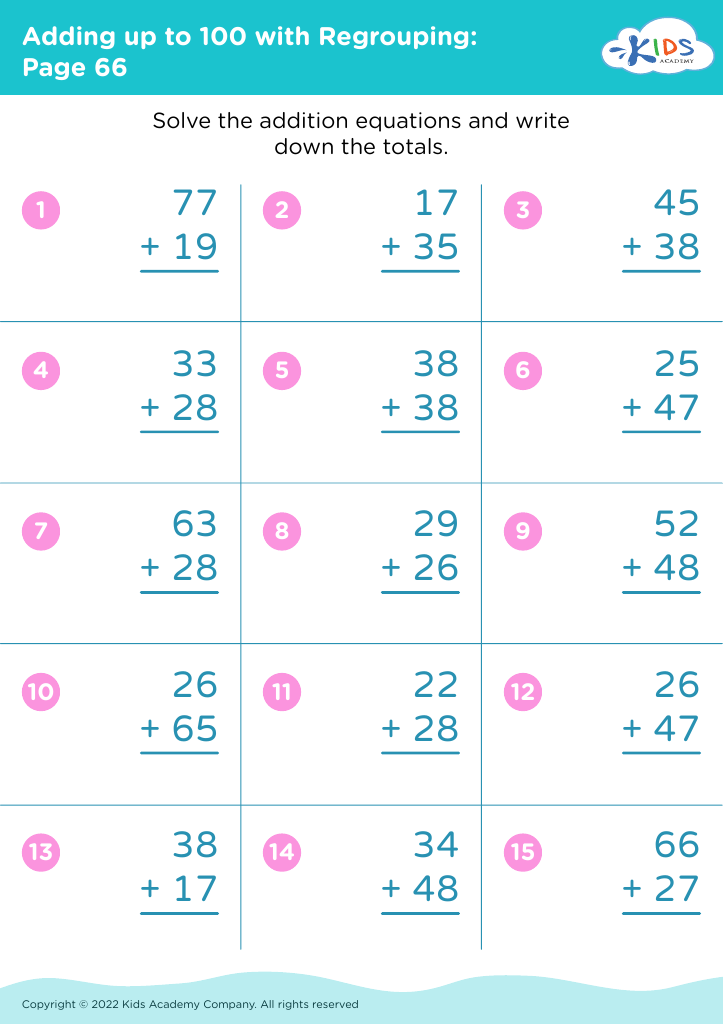Develop inference skills Addition Worksheets for Ages 4-8
3 filtered results
-
From - To
Our "Develop Inference Skills Addition Worksheets" for ages 4-8 combine fun and learning to build crucial math and thinking abilities. Designed with vibrant illustrations and engaging exercises, these worksheets help young learners improve their addition skills while developing their capacity to make logical inferences. By solving carefully crafted addition problems, children not only master basic arithmetic but also enhance their ability to analyze information and draw conclusions. Perfect for both classroom and at-home practice, our worksheets foster a love for learning and critical thinking, setting a solid foundation for future academic success. Try them today and watch your child's confidence soar!
Developing inference skills in children ages 4-8 is crucial for their cognitive and educational growth. These skills enable kids to read between the lines, understand implicit meanings, and draw conclusions based on given information. For parents and teachers, prioritizing the development of inference skills can considerably impact a child’s future academic success and problem-solving abilities.
Firstly, strong inference skills are foundational for reading comprehension. Being able to infer helps children to grasp the storyline, understand characters’ motivations, and predict outcomes, enriching their reading experience. This lays a strong groundwork for advanced literacy skills that are essential for long-term academic achievement.
Secondly, inference skills are invaluable in fostering critical thinking. Children learn to analyze, synthesize, and evaluate information rather than just memorizing facts. This cognitive ability supports diverse learning areas like science, where inferring from experiments can lead to better understanding of concepts.
Lastly, nurturing these skills helps young children navigate social interactions. Inferring others' thoughts and feelings fosters empathy and improves communication, vital traits for personal and social development.
By embedding activities that promote inferencing in early education, parents and teachers provide a toolkit for children to explore, question, and understand their world more comprehensively, preparing them for a lifetime of learning and successful interactions.























